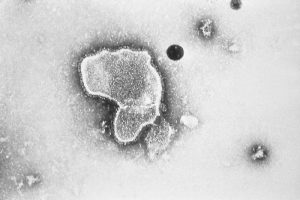By NewsDesk @bactiman63
The Swedish Public Health Agency continues to report high levels of respiratory syncytial virus (RSV) and the number number of cases of RSV among infants is still very high compared to previous seasons.

“Our advice on being vigilant for new symptoms in yourself or your child is important to follow. New-onset runny nose, cough, sore throat, fever or malaise are not only signs of covid-19, it can also be an RS virus, so regardless of illness, it is important to stay at home. Above all, it is important to protect children under six months”, says Annasara Carnahan, investigator at the Swedish Public Health Agency.
The explanation for the high spread of infection is mainly in the fact that few young children are immune to RSV because the spread has been low in the last two seasons, partly due to the restrictions against covid-19.
“We now have up to three cohorts of the youngest children who are not immune to RS virus because the spread has been so low. If you suspect that an infant is affected by an RS virus infection, for example with difficulty breathing or difficulty eating, it is a good idea to call 1177 for advice on whether the child may need care”, says investigator Annasara Carnahan.
The Swedish Public Health Agency’s recommendations to be vigilant for new symptoms and stay at home are intended to prevent the spread of covid-19, RSV, influenza and other respiratory infections that are common during the winter. Regions may also have supplementary local advice and routines aimed at RSV.
Bird flu in Europe: France moves to ‘high risk’
Sweden reports monophasic Salmonella Typhimurium outbreak, 33 affected
Ukraine reports polio case in Transcarpathia, Not related to earlier case
Sweden continues recommending Pfizer vaccine to anyone born in 1991 or later

